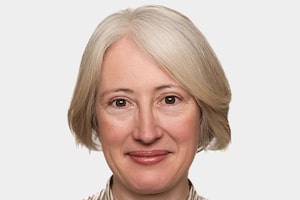unknown/Getty Images/iStockphoto
Frances Woolley is a professor of economics at Carleton University, where she teaches public finance
In theory, there is a trade-off between the quantity and "quality" of children. When parents have more children, there are fewer resources available for each child. Parents of an only child might be able to afford both soccer and music lessons. Parents of three or four children might find the money (and time) costs of putting every child into both soccer and music too much.
This theory raises two questions.
First, what happens in the real world? Do parents really invest less in each child when they have more children?
Second, when parents spend less money on expensive activities, are children worse off? Does their academic and other performance suffer?
These questions are tough to answer because a child's achievements reflect many interdependent factors. For example, if people with strong religious convictions also tend to have large families, it becomes difficult to separate out the competing influences of faith and family size.
A forthcoming paper by Marc Frenette answers these questions using an innovative strategy: he looks at families with twins. Strictly speaking, he looks at about 28,000 Canadian youth who were 15 in 1999, and compares those from families containing twins or other multiple births with other youth.
Frenette's idea is that a multiple birth unexpectedly changes a family of, say, two children into a family of three or more. It's the surprise element that matters. Frenette is looking at people who end up with larger families, not people who plan to have larger families.
So what does it mean for an older brother when Mom and Dad come home for the hospital with twins? What's it like to be the younger sister of twins?
First, you get less computer time. Frenette finds that, even after controlling for family income, education, and myriad other factors, having twin siblings reduces the number of computers per child by 14.1 percentage points.
Second, you are less likely to be enrolled in private school -- youth are 4 percentage points less likely to in private school when there are twins in the family, all else being equal.
Third, parents are less likely to save money for their children's post-secondary education in families with twins.
And the impact of fewer computers, less private school, and less saving for post-secondary education on children's academic performance is…not much.
Fifteen year olds from families with twins do no worse than other children in international standardized assessments of reading achievement. If anything, they appear to do slightly better -- but there are too few families with twins in Frenette's sample to know whether the difference is statistically significant.
As a parent, I find these results encouraging. Even if your resources are stretched, and you can't do everything you've planned for your kids, they might turn out just fine anyways.
Follow Economy Lab on twitter
 Frances Woolley
Frances Woolley